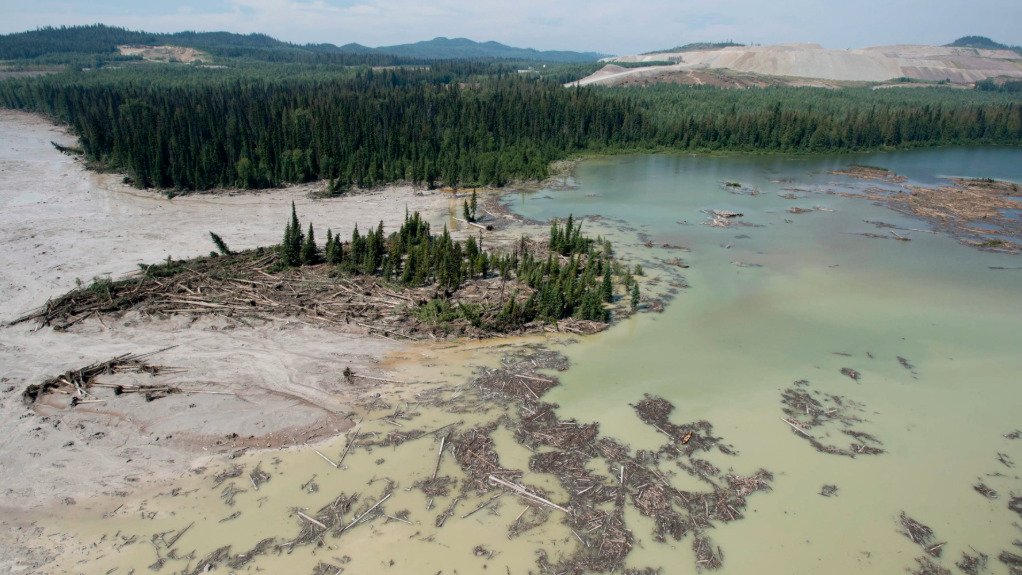Imperial Metals and its subsidiary, Mount Polley Mining, along with engineering firm Wood Canada, have been charged with alleged violations of Canada’s federal Fisheries Act.
The charges stem from the catastrophic failure of the tailings storage facility (TSF) at the Mount Polley mine, in British Columbia, over a decade ago.
The charges, detailed in an indictment filed with the Supreme Court of British Columbia on December 6, were received by the company on Tuesday, according to a statement.
As the case is now before the courts, Imperial has indicated that it will not provide further public comment.
The Mount Polley TSF failure, regarded as one of the worst environmental disasters in Canadian mining history, occurred on August 4, 2014. The breach released about 25-million cubic meters of tailings and contaminated water into nearby Polley Lake and Quesnel Lake, a key salmon-spawning habitat. The spill led to widespread ecological damage, prompting water-use restrictions, a significant cleanup effort, and heightened scrutiny of tailings storage practices across the mining sector.
An Independent Expert Engineering Investigation and Review Panel, convened after the disaster, attributed the failure to the undetected weakness in a layer of glacial soils beneath the dam. The incident underscored systemic shortcomings in both design and regulatory oversight.
Despite ongoing cleanup efforts and the eventual restart of operations at Mount Polley in 2016, the disaster’s long-term impacts on local ecosystems and Indigenous communities continue to raise concerns.
Besides Mount Polley, Imperial also operates the Huckleberry mine and has a 30% stake in the Red Chris mine.



